Short Biographies of the Speakers
(in alphabetical order)
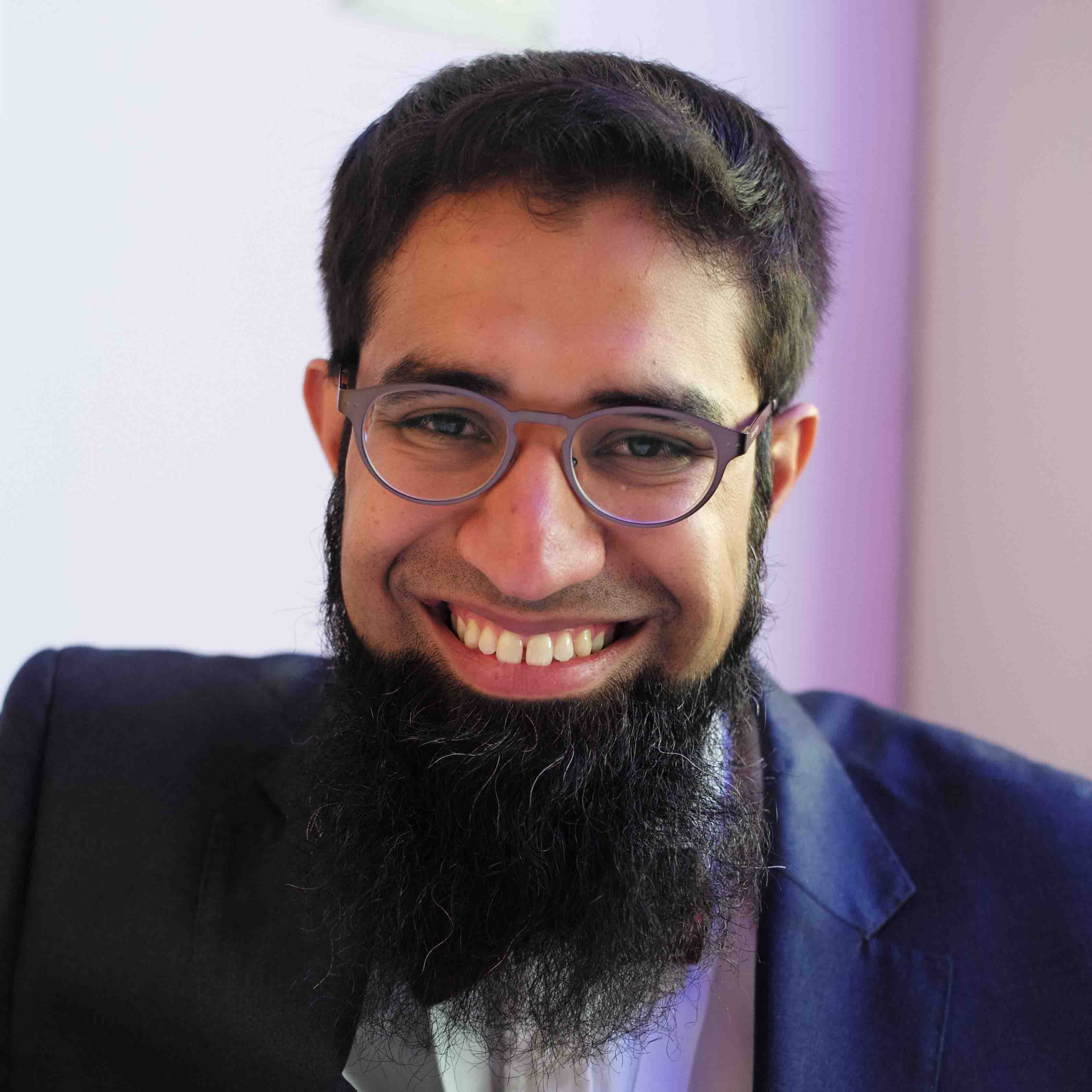
Ismail Akhalwaya |
Dr. Ismail Akhalwaya is a research scientist at IBM Research | Africa and visiting lecturer in the Department of Computer Science and Applied Mathematics at the University of the Witwatersrand. His two main parallel research interests include AI (neuro-symbolic) and quantum computing, with the intersection of the two forming a tantalizing, nascent, third direction. |
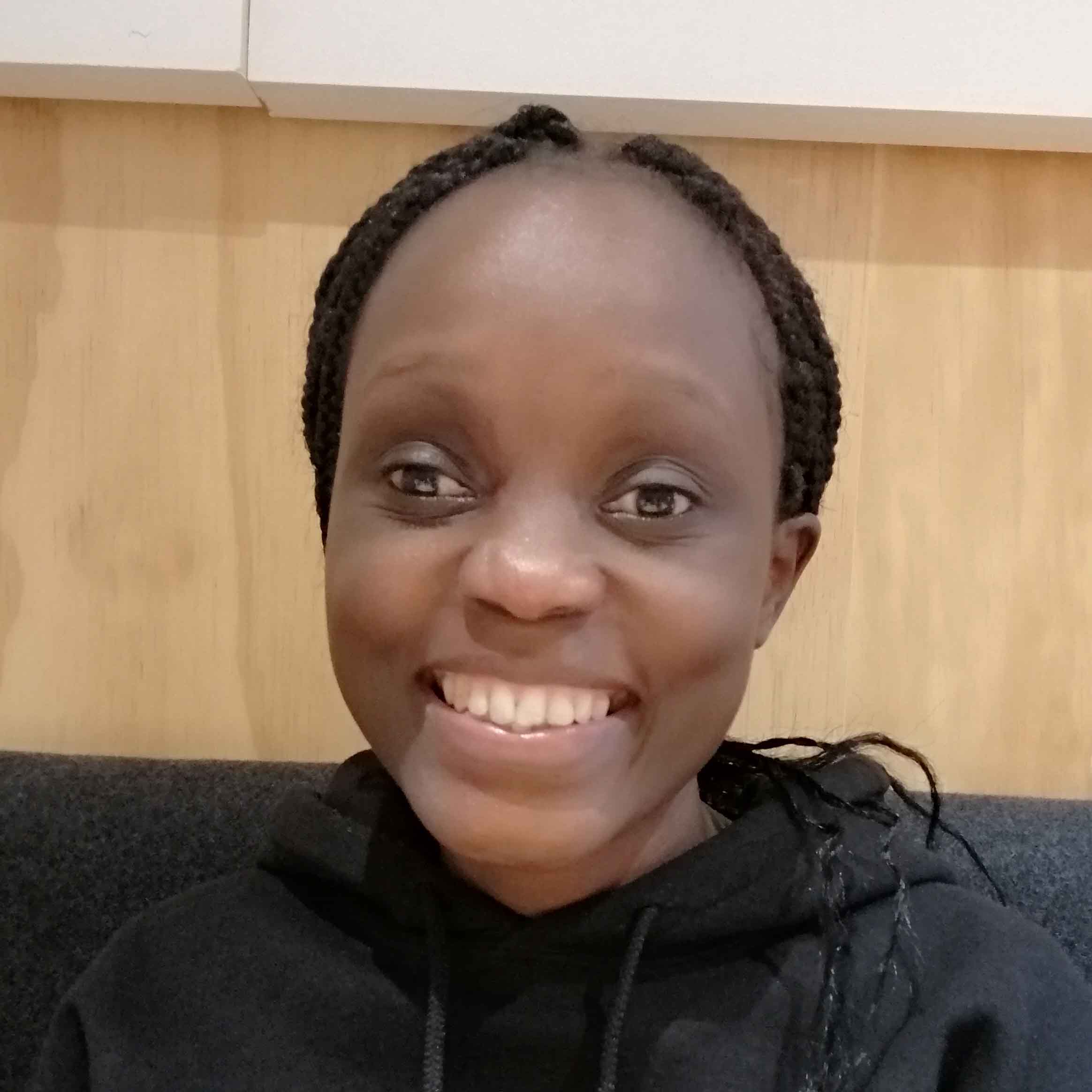
Joan Byamugisha |
Joan Byamugisha is a research scientist at IBM research Africa in Johannesburg, South Africa. She has a PhD in Computer Science from the University of Cape Town. Her work in computational linguistics focuses on creating computational resources to process Bantu language text; as well as to extract semantics from English text and applying them to feature engineering, error analysis, and data labeling for use by NLP machine learning models. |

Celia Cintas |
Celia Cintas is a Research Scientist at IBM Research Africa - Nairobi, Kenya. She is a member of the AI Science team at the Kenya Lab. Her current research focuses on the improvement of ML techniques to address challenges on Global Health in developing countries and exploring subset scanning for anomaly detection under generative models. |

Naweed Khan |
Naweed Khan is a Research Scientist in the AI Science team at IBM Research | Africa. He heads the patent portfolio in the South Africa lab and is a lead open source developer in the global Neuro-Symbolic AI team. He is a recipient of IBM’s Research Accomplishment award, with work focusing on enhancing core machine learning algorithms, computational framework implementation and infrastructure development in projects that look beyond today’s deep learning approaches. He develops tools that push the boundaries in Natural Language Understanding: making machines that reason with knowledge, learn with noisy data and compute in an efficient and symbolically interpretable way. Naweed obtained his MEng in Robotics and Image processing at the University of Johannesburg, where he also holds a BSc in Computer Science. |

Vera Liao |
I am a research staff member in IBM Research AI. My research background is in human-computer interaction. I have broad interests in human-AI interaction, with focuses on explainable AI, human centered machine learning and conversational agents. |

Francois Luus |
Dr. Francois Luus is a Technical Lead in Machine Learning at IBM Research - Africa. He is responsible for research programmes in Advanced and Applied AI that solve difficult problems in the domains of Radio Astronomy and Computer Vision. He led a multi-year joint study with the Square Kilometre Array South Africa to develop machine learning for mitigation of radio frequency interference. Filed several joint patents and published on Generative ML solutions to RFI detection and removal. He was also a principal advisor to the SETI Institute in the areas of Cloud Computing and Cognitive Computing, where he has spearheaded analytics efforts for numerous observation campaigns. He has recently been working with a team developing Deep Learning solutions for Natural Language Understanding. |

Ndivhuwo Makondo |
Ndivhuwo Makondo is a Research Scientist in Machine Learning at IBM Research | Africa, in the South Africa Lab. He holds a BSc and an MSc (specializing in Robotics) in Electical Engineering from the University of Cape Town, South Africa; and a PhD in Computational Intelligence and Systems Science from the Tokyo Institute of Technology, Japan. He began his career on a Masters Studentship at the Council for Scientific and Industrial Research (CSIR) in 2011, South Africa, in the Mobile Intelligent Autonomous Systems (MIAS) group, where he conducted research on stability analysis and path planning for a mobile manipulator as part of the Mining Safety Platform project. He then enrolled for a PhD at the Tokyo Institute of Technology in 2013, on a MEXT scholarship, conducting research in Machine Learning and Robotics, where investigated the acceleration of robot learning of motor skills with knowledge transfer. |

Youssef Mroueh |
Youssef Mroueh is a research staff member in IBM since April 2015. He is a technical team leader in the Trustworthy Machine Learning department. He received his PhD in computer science in February 2015 from MIT, CSAIL, where he was advised by Professor Tomaso Poggio. |
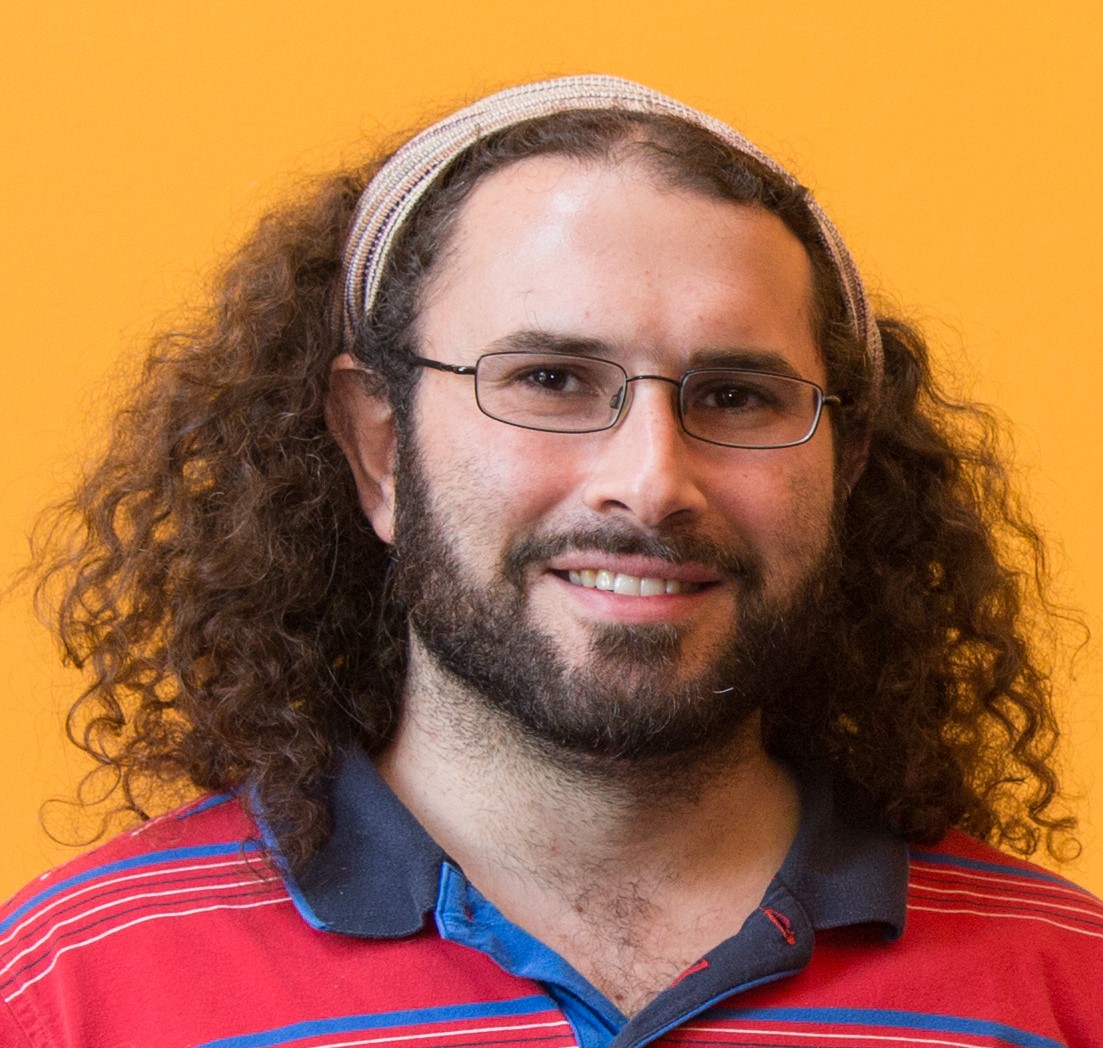
Benjamin Rosman |
Benjamin Rosman is an Associate Professor in the School of Computer Science and Applied Mathematics at the University of the Witwatersrand, South Africa, where he runs the Robotics, Autonomous Intelligence and Learning (RAIL) Laboratory and is the Director of the National E-Science Postgraduate Teaching and Training Platform (NEPTTP). |

Ezinne Nwankwo |
Ezinne Nwankwo is an incoming Ph.D. student in Computer Science at the University of California, Berkeley. She completed her M.S. in Statistics at Duke University, B.A. in Applied Math at Harvard University, and a post-graduate fellowship at the University of Cambridge. Her research focuses on using statistical and machine learning methods to better understand society and to aid in equitable decision-making processes. She is a passionate advocate for students from underrepresented backgrounds as an organizer and board member of Black in AI. |
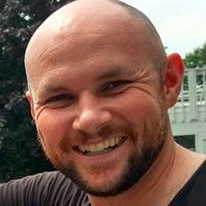
Skyler Speakman |
Skyler uses Machine Learning and Data Science to impact peoples' lives across the continent of Africa. He is a member of the "Inclusive Financial Services" team at the Kenya Lab. |
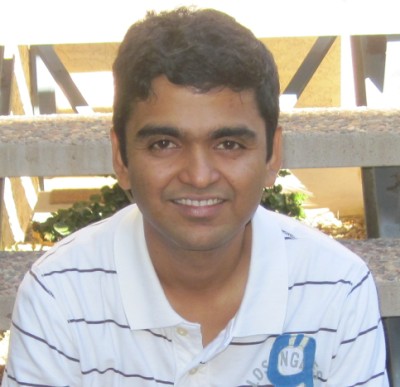
Karthikeyan Natesan Ramamurthy |
Karthikeyan Natesan Ramamurthy is a research staff member in IBM Research AI at the Thomas J. Watson Research Center. He is intrigued by the interplay between humans, machines, and data and the societal implications of machine learning. His other research interests include understanding the geometry and topology of high-dimensional data and developing theory and methods for efficiently modeling the data. He was involved in the initial development of the the open source AI Fairness 360 toolkit, and is still an active contributor/maintainer. His papers have won best paper awards at the 2015 IEEE International Conference on Data Science and Advanced Analytics and the 2015 SIAM International Conference on Data Mining. He is an associate editor of Digital Signal Processing and a member of the IEEE. He holds a PhD in electrical engineering from Arizona State University. |

Alexandre Rademaker |
Alexandre has a doctorate in Computer Science from PUC-Rio (2010). He is a research scientist in IBM Research (Brazil Lab) and an adjunct professor at the Applied Mathematics Department from Getulio Vargas Foundation (Rio de Janeiro, Brazil). He has written more than 90 papers published in peer-reviewed journals and international conferences in his areas of expertise: logic, proof theory, knowledge representation and reasoning, language resources, computational linguistics, and type theory. He participates as a member of many program committees of regular conferences like ACL, COLING, LREC, and others. He is also a board member of the Global WordNet Association. Alexandre collaborates on maintaining many language resources and developing applications using these resources for ‘deep’ linguistic processing of human languages. |

Ryan Riegel |
Ryan Riegel is a researcher in the AI Reasoning group at IBM Research. He works on neuro-symbolic reasoning methods and their related technologies, including sound and complete real-valued logic, logically constrained neural network learning, extensions of said to temporal and modal logic, and applications including natural language question answering. In the past, he has worked on fast algorithms for a family of nonparametric machine learning methods dubbed generalized N-Body problems, which includes all-nearest-neighbors and kernel density estimation. He also co-founded an AI startup where he oversaw and contributed to the development of enterprise-grade machine learning software for Big Data. He received a Joint BS in Mathematics and Computer Science from Harvey Mudd College and a PhD in Computer Science from the Georgia Institute of Technology. |
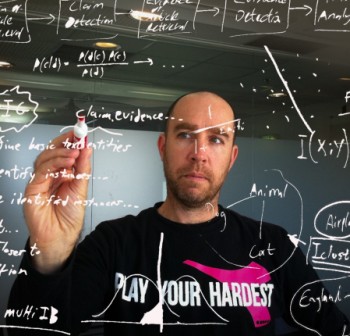
Noam Slonim |
I am a Distinguished Engineer (DE) at the IBM Haifa Research Lab and serve as the Principal Investigator of Project Debater. Before that I was an Associate Research Scholar in the Department of Physics at Princeton University, working in the biophysics group and in the Systems Biology group, mainly with Prof. Bill Bialek and Prof. Saeed Tavazoie. Even before that, I did my PhD at the Interdisciplinary Center for Neural Computation (ICNC) at the Hebrew University of Jerusalem, working in the Machine Learning lab under the supervision of Prof. Naftali Tishby. |

Girmaw Tadesse |
Girmaw is a Research Scientist at IBM Research Africa working in AI Science and Healthcare teams, mostly on designing machine learning techniques to utilize multiple data sources to understand global healthcare challenges (e.g., child mortality), and to discover anomalous groups related to interventions. Prior to that, Girmaw worked as a Postdoctoral Researcher at the University of Oxford, where he primarily developed deep learning techniques to assist diagnosis of cardiovascular disease, cancer, tetanus and hand, foot and mouth diseases. He worked in multiple projects with international collaborations including clinicians and reasearchers in China and Vietnam. |

Kush Varshney |
Kush R. Varshney was born in Syracuse, NY in 1982. He received the B.S. degree (magna cum laude) in electrical and computer engineering with honors from Cornell University, Ithaca, NY, in 2004. He received the S.M. degree in 2006 and the Ph.D. degree in 2010, both in electrical engineering and computer science from the Massachusetts Institute of Technology (MIT), Cambridge. While at MIT, he was a National Science Foundation Graduate Research Fellow. Dr. Varshney is a distinguished research staff member and manager with IBM Research at the Thomas J. Watson Research Center, Yorktown Heights, NY, where he leads the machine learning group in the Foundations of Trustworthy AI department. He was a visiting scientist at IBM Research - Africa, Nairobi, Kenya in 2019. He is the founding co-director of the IBM Science for Social Good initiative. He applies data science and predictive analytics to human capital management, healthcare, olfaction, computational creativity, public affairs, international development, and algorithmic fairness, which has led to recognitions such as the 2013 Gerstner Award for Client Excellence for contributions to the WellPoint team and the Extraordinary IBM Research Technical Accomplishment for contributions to workforce innovation and enterprise transformation, and Harvard Belfer Center Tech Spotlight runner-up for AI Fairness 360. He conducts academic research on the theory and methods of trustworthy machine learning. His work has been recognized through best paper awards at the Fusion 2009, SOLI 2013, KDD 2014, and SDM 2015 conferences and the 2019 Computing Community Consortium / Schmidt Futures Computer Science for Social Good White Paper Competition. He is currently writing a book entitled 'Trust in Machine Learning' with Manning Publications. He is a senior member of the IEEE. |

Richard Young |
Richard Young is a software developer with a passion for problem solving. He loves building web applications, trying out new technologies and tinkering with electronics and IoT devices. He considers himself somewhat of a polyglot programmer and has worked on systems that do everything from calculating optimal pizza toppings to teaching languages in the classroom using AI. He has been at IBM Research since 2018 where he is helping to deliver innovative solutions to some of Africa's biggest challenges. |